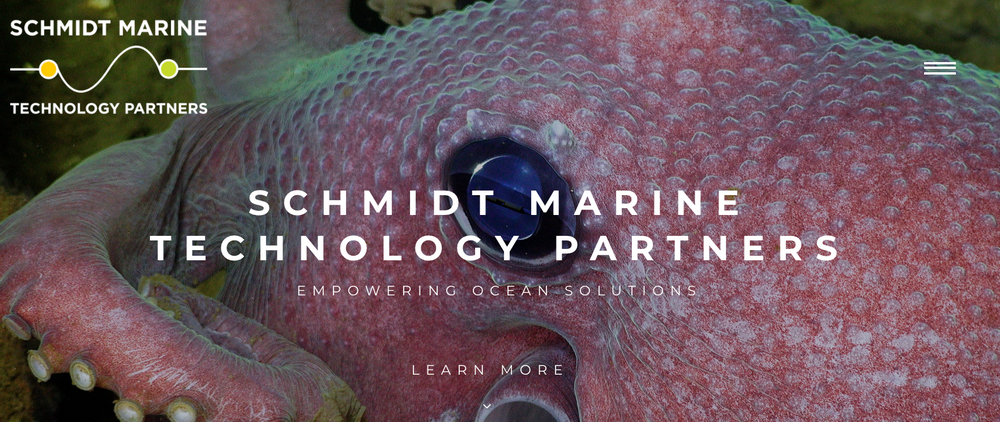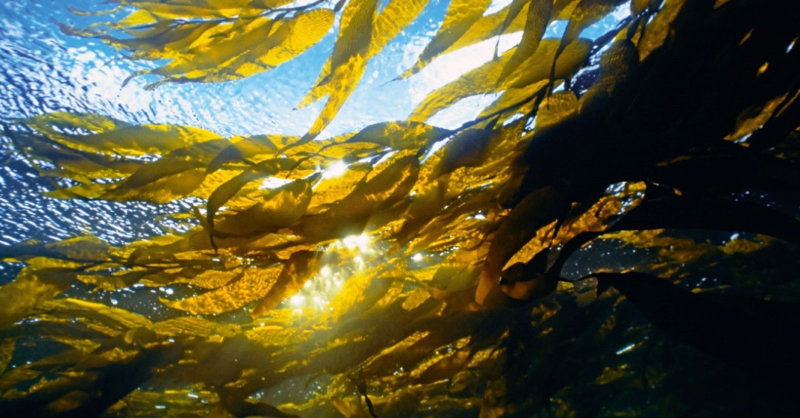With help from Schmidt Marine Technology Partners, Ocean Visions is working to accelerate the pace of marine carbon dioxide removal
Reposted from Schmidt Marine Technology Press
Every second of every day, the equivalent of five Hiroshima-sized bombs’ worth of heat energy is absorbed by the ocean—the result of greenhouse gasses put into the air by human activities. “The oceans are absorbing a staggering amount of heat,” says Brad Ack, a Schmidt Marine Technology Partners’ grantee and executive director of Ocean Visions. “This silent catastrophe is destroying much of what we care about in the ocean.” Additionally, the ocean absorbs about 30% of human-caused carbon pollution.
Together, excess heat and carbon dioxide are bleaching corals, melting sea ice, and acidifying the sea at alarming rates. Yet few organizations are addressing the root cause of these problems. That’s where Ocean Visions comes in. Founded in 2019 by a dozen of the world’s most respected ocean science organizations, including the Scripps Institute of Oceanography and Stanford University, Ocean Visions is a research consortium and network dedicated to solving to the ocean’s most pressing problems—starting with the carbon dioxide pollution that’s leading to rapid warming and acidification.
A new path, backed by science
Until recently, most efforts to mitigate climate change have focused on stemming the flow of greenhouse gasses emissions into the atmosphere. But the Intergovernmental Panel on Climate Change says that alone, turning off the tap won’t keep global warming from exceeding 1.5 degrees Celsius. We also need to remove billions of tons of “legacy” carbon dioxide already poisoning our air and water.
To that end, Ocean Visions’ first goal is to identify the most promising technologies for increasing the ocean’s capacity to sequester and permanently store carbon dioxide in marine environments. While carbon dioxide removal (CDR) is beginning to gain acceptance as a critical tool, removing carbon dioxide from the ocean has remained relatively underexplored compared to terrestrial approaches. Yet the ocean holds enormous potential to increase it’s already-outsized role in carbon cycling, and to do so by mimicking and enhancing natural and geological processes already underway.
Ocean Visions is taking a leadership role in drawing attention and resources towards a methodological approach to technology development, backed by top scientists and conservationists. So far, the team has is working on three main focus areas. The first is cultivating macro-algae, such as giant kelp, which removes carbon from the ocean in the same way that trees remove carbon from the atmosphere.
The second is adding alkaline substances, such as lime or natural minerals, to the ocean to reduce acidity. Known as ocean alkalization, this process converts marine carbon dioxide to other, harmless molecules. The ocean then sucks more carbon dioxide from the air to restore equilibrium.
The last method is separating carbon dioxide from seawater using electrochemical processes, similar to the way direct air capture technology removes carbon dioxide from the atmosphere.
Ocean Visions isn’t deploying these technologies itself. Instead, it’s providing a platform for researchers, businesses and others to work together on the highest priority developmental areas to ultimately figure out if these are, in fact, sustainable, equitable and scalable solutions for reducing carbon dioxide pollution in the world’s oceans.
Mapping the future of carbon dioxide removal
Schmidt Marine is providing vital support for Ocean Visions’ work. In summer 2020, Schmidt Marine helped fund a series of workshops hosted by Ocean Visions, in which experts identified the current state of each technology, the challenges and obstacles each face, the social and environmental costs and the next steps. The findings will soon be published in an open-source online roadmap. Researchers, inventors and entrepreneurs will be able to pull from and add to the map, eventually advancing carbon dioxide removal technologies toward testing, deployment and commercialization.
“Essentially, Schmidt’s funding is pivotal in the development of technology roadmaps,” Ack explains.
Over the next decade, Ack hopes that these roadmaps will help move ocean-based carbon dioxide removal from an undervalued tool to a widely-deployed strategy in the fight against climate change. It’s a shift that can’t come soon enough. “The ocean has shielded humanity and terrestrial biodiversity from the worst ravages of climate change so far, but it has borne an enormous cost in doing so,” he says. “It’s continuing to bear that cost, but its tolerance is running out.”

